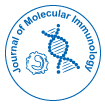Our Group organises 3000+ Global Conferenceseries Events every year across USA, Europe & Asia with support from 1000 more scientific Societies and Publishes 700+ Open Access Journals which contains over 50000 eminent personalities, reputed scientists as editorial board members.
Open Access Journals gaining more Readers and Citations
700 Journals and 15,000,000 Readers Each Journal is getting 25,000+ Readers
Indexed In
- RefSeek
- Hamdard University
- EBSCO A-Z
Useful Links
Related Subjects
Share This Page
Alexander Y. Tsygankov

Alexander Y. Tsygankov
Department of Microbiology and Immunology
Temple University School of Medicine
USA
Biography
I have been working in the area of signal transduction mediated by protein tyrosine phosphorylation for ~20 yr, publishing multiple papers on the functions of protein tyrosine kinases and their substrates. In particular, my laboratory has always been interested in the Cbl family. As a result of the interest in Cbl, we became co-discoverers of the TULA family; we identified and characterized TULA, a Cbl-associated protein. We then showed that TULA-2, but not TULA, is an active protein tyrosine phosphatase capable of dephosphorylating Syk. We later determined specificity of TULA-2, provided evidence that Syk is its bona-fide substrate, and characterized the overall effect of TULA-2-mediated dephosphorylation of Syk on GPVI signaling in platelets, a system that is uniquely convenient for studies of the role of TULA-2 in signaling regulation. My interests in platelet signaling and activation lead to establishing fruitful collaborations with several platelet experts working in Philadelphia, including Dr. Kunapuli of Temple University School of Medicine. This collaboration resulted in several publications focused on the functional role of TULA-2 in platelets. The current focus of these collaborative studies is on deciphering of molecular mechanisms of the down-regulatory function of TULA-2 in platelet signaling, both GPVI- and CLEC-2-mediated.
Research Interest
My major interest lies in the area of cell signaling, in particular, of its regulation by protein tyrosine kinases and phosphatases. Previous work with protein kinases of Src and Syk families and adaptor proteins of Cbl family, which we among others demonstrated to be involved in Src- and Syk-mediated signaling, resulted in the discovery of the TULA family. We identified and characterized TULA, a Cbl-associated protein and later demonstrated that TULA-2, but not TULA, is an active protein tyrosine phosphatase capable of dephosphorylating Syk, which along with the highly-related kinase Zap-70 is a bona-fide substrate of TULA-2. Hence, my current interests are focused on understanding the role of TULA-family proteins in cell signaling and activation. This issue is addressed in two experimental systems – T lymphocytes and platelets. Our results indicate that TULA- and TULA-2-null mice are significantly more responsive to experimentally induced colitis and that this inflammation to a large degree depends on hyper-responsiveness of TULA-deficient T cells to stimulation through T-cell antigen receptor. These results are directly related to understanding of molecular and cellular mechanisms of inflammatory bowel disease. We have also shown that TULA-2-mediated dephosphorylation of Syk significantly reduces platelet signaling mediated by GPVI collagen receptor thus increasing the platelet activation threshold, which prevents unnecessary and potentially dangerous stimulation of platelet responses by sub-optimal stimuli. Our results indicate that TULA-2-null platelet exhibit greatly potentiated responses in vitro and in vivo. Likewise, pharmacological inhibition of TULA-2 by a novel compound appears to exert similar effects on platelets. Our current focus in these studies is deciphering the molecular mechanism of the down-regulatory function of TULA-2 in GPVI signaling and assessing the therapeutic potential of TULA-2 as a target in treatment of platelet-dependent bleeding disorders.

 Spanish
Spanish  Chinese
Chinese  Russian
Russian  German
German  French
French  Japanese
Japanese  Portuguese
Portuguese  Hindi
Hindi 